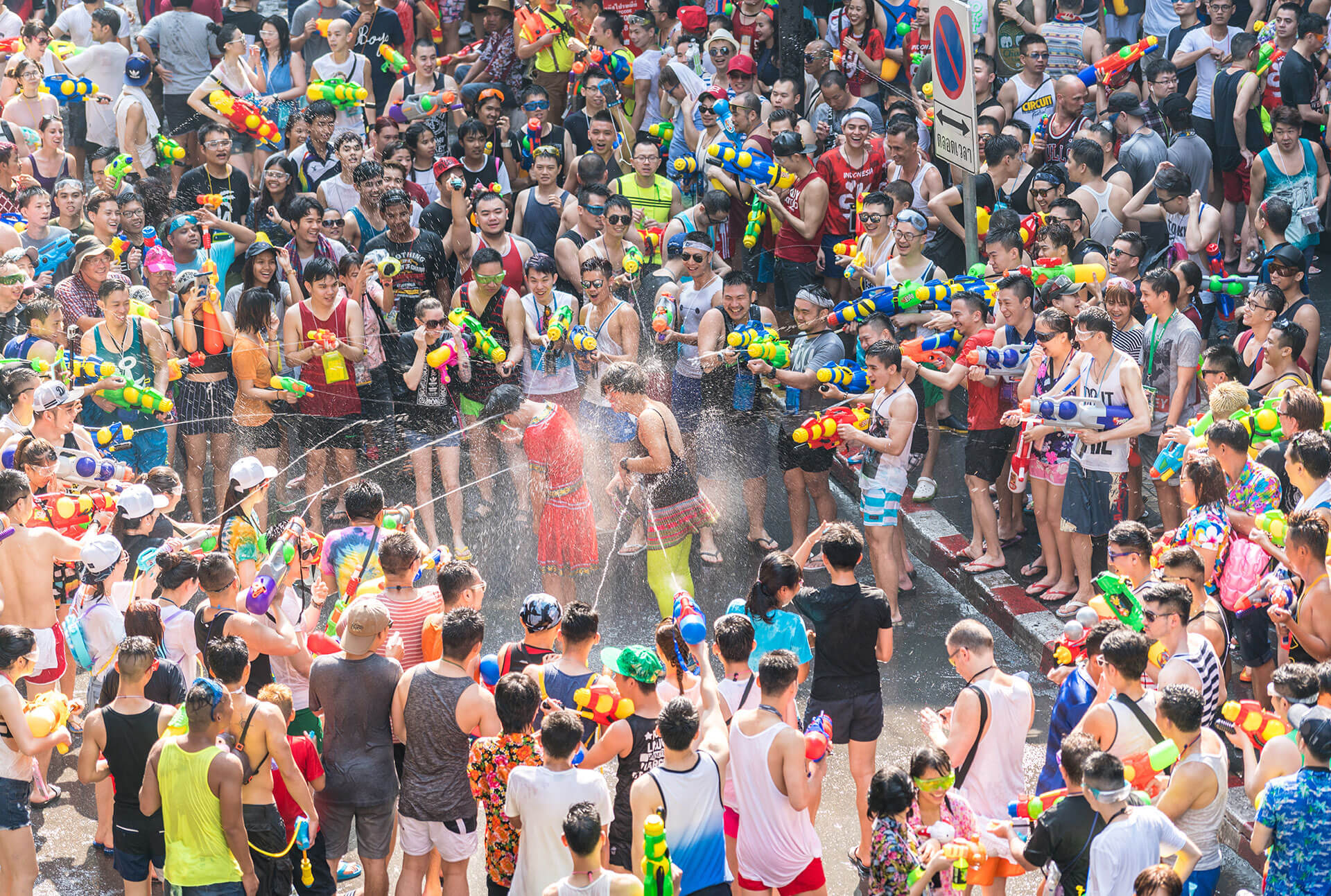
- On 22/02/2024
- In Blogs Travel Tips
- Tags:
Songkran Festival
Thai 🇹🇭 New Year or Songkran is the Thai New Year's national holiday. Songkran is on 13 April every year, but the holiday period extends from 14 to 15 April. The Songkran festival of Thailand has been formally recognized as an Intangible Cultural Heritage by the United Nations Educational, Scientific and Cultural Organization UNESCO on 6th December 2023. A Thai government committee plans to hold Songkran Festival celebrations during the entire month of April 2024, instead of the traditional three days. The Thai National Elderly Day falls on April 13, and National Family Day on April 14 to allow the Thais more time to celebrate reunion with their families.
By UNESCO | Wikipedia |
Songkran in Thailand, traditional Thai New Year festival
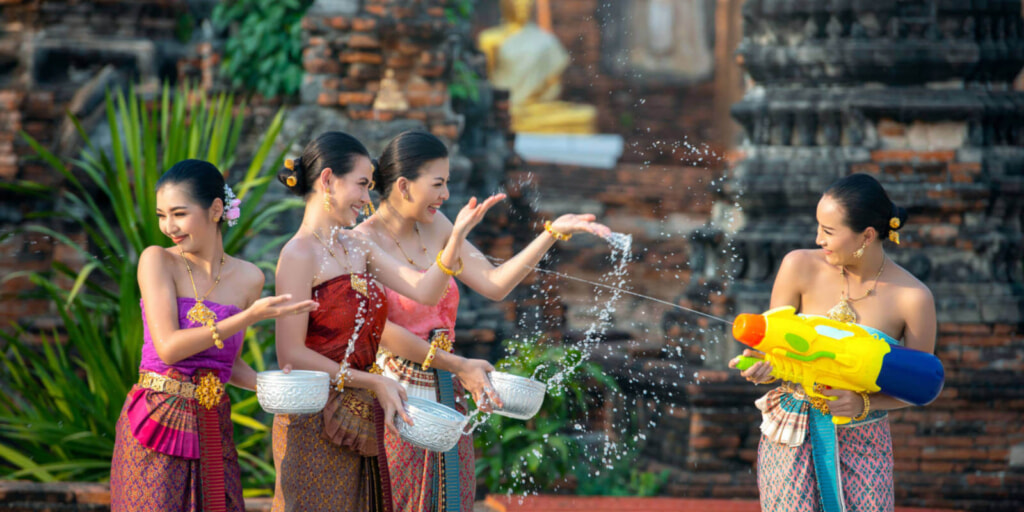
The word «Songkran» comes from the Sanskrit word literally «astrological passage», meaning transformation or change. It coincides with the rising of Aries on the astrological chart and with the New Year of many calendars of Southeast and South Asia, in keeping with the Buddhist and Hindu Calendar. The New Year takes place at around the same time as the new year celebrations of many regions of Asia like India, Laos, Cambodia, Myanmar, Nepal and Sri Lanka.
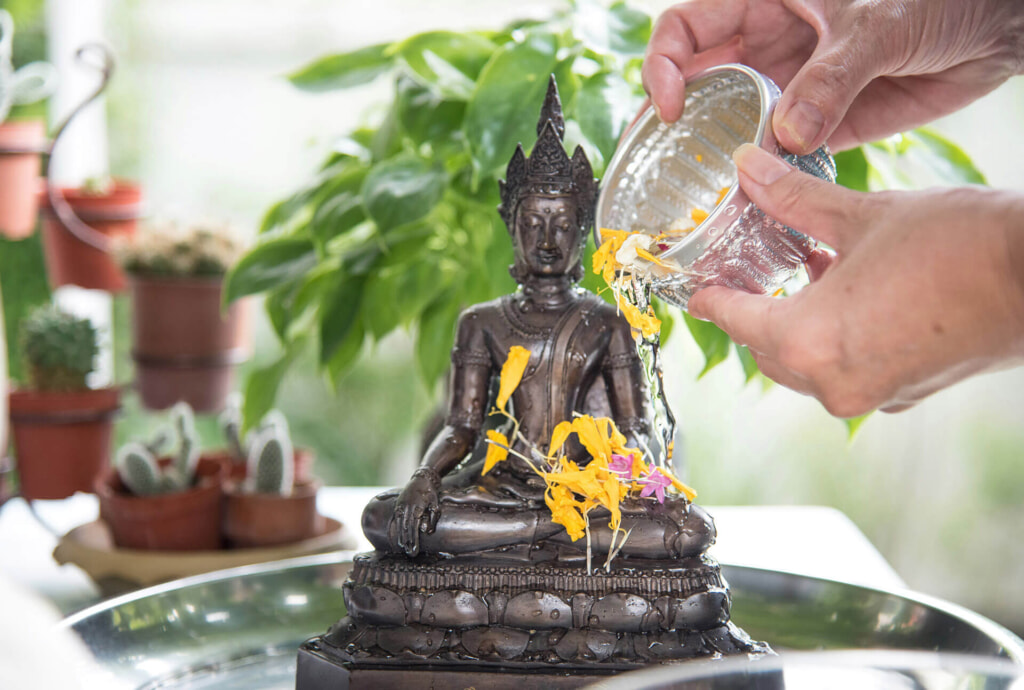
In Thailand, New Year is now officially celebrated 1 January. Songkran was the official New Year until 1888, when it was switched to a fixed date of 1 April. Then in 1940, this date was shifted to 1 January. The traditional Thai New Year Songkran was transformed into a national holiday. Celebrations are famous for the public water fights framed as ritual cleansing. This had became quite popular among Thai and foreigners.
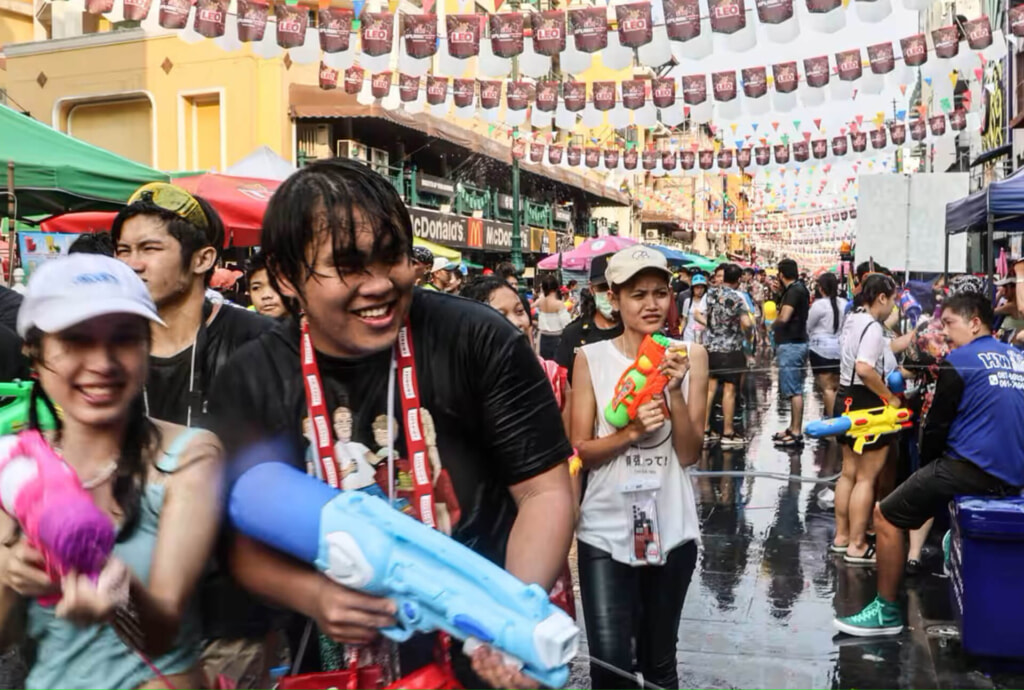
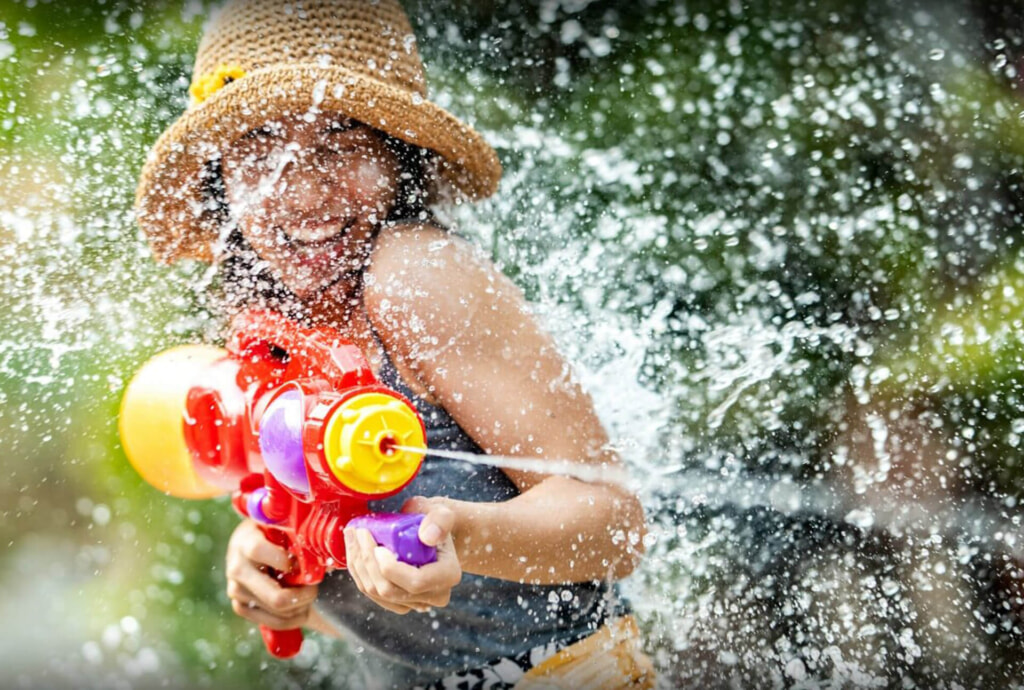
In Thailand, Songkran refers to the sun’s annual passing into the Aries constellation, the first sign of the Zodiac, which marks the traditional start of the new year. Occurring in mid-April after the rice harvest, it is a time when people reunite with their families and pay their respects to older adults, ancestors and sacred Buddha images. Pouring water is a significant act during Songkran, symbolizing cleansing, reverence and good fortune.
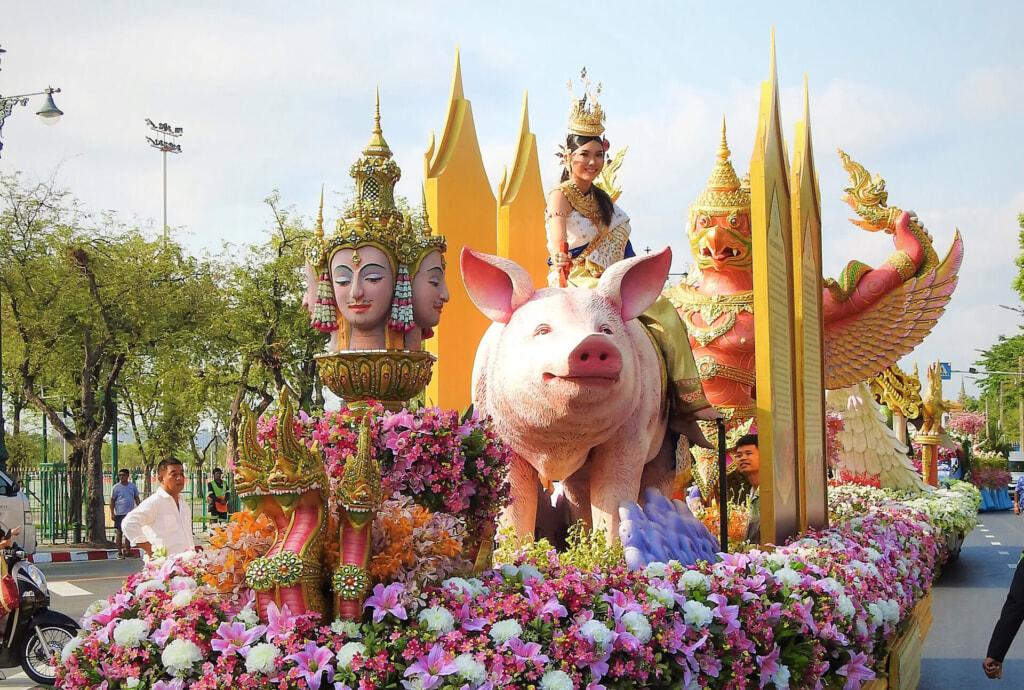
Other activities include bathing important Buddha images, splashing water on family and friends, folk plays, games, music and feasting. The tradition is passed on through participation in the festivities. Parents transmit the tradition to their children orally through regular social and family interactions. Educational institutes, government agencies, the media and Thai astrologers also play an important role in preserving, promoting and transmitting the astrological knowledge and wisdom related to Songkran. Songkran promotes community cooperation, unity and forgiveness.
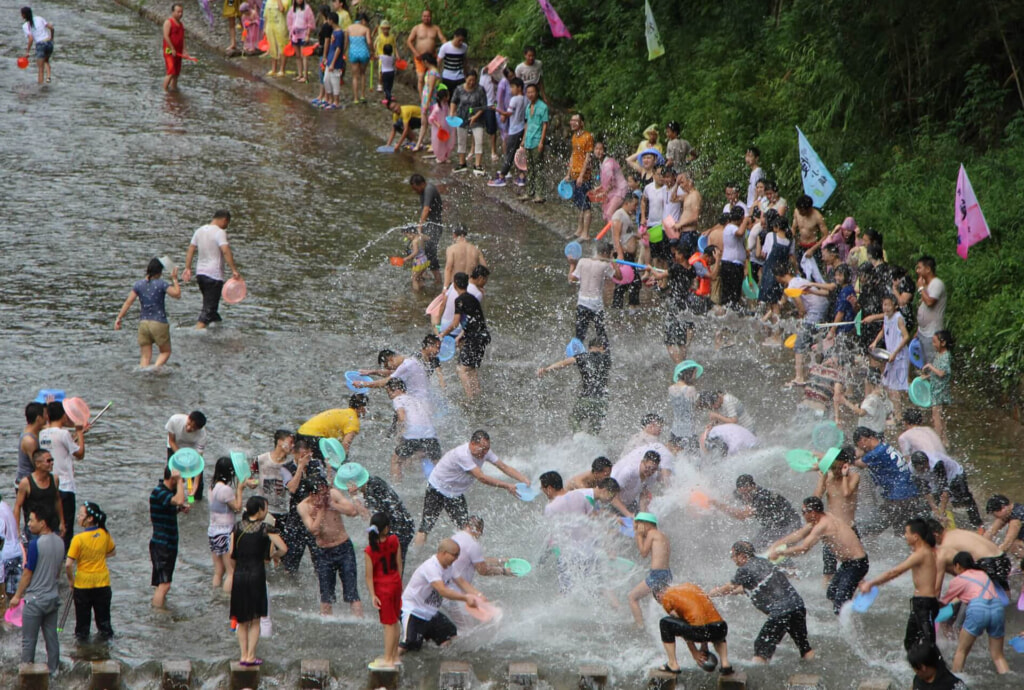
It is viewed as a time to symbolically wash away misfortunes, pray for prosperity for the coming year, reunite with family members, and honour ancestors and older adults. Furthermore, by emphasizing the importance of older adults and of family, Songkran helps to combat loneliness and social isolation.
Origin and Myths
The origin of songkran festival lies in a Buddhist folk myth or non canonical jataka related to harvest and spring. In prosperous city of Sukhavati in Suvvannabhumi, Bodistva was born in the household of a poor farmer. Once upon a time, Indra the king of Devas, looked at the city from heaven, and felt sad seeing the high level of corruption. He found that people did not respect their elders, behaved rudely, and didn't serve them proper food and medicines.
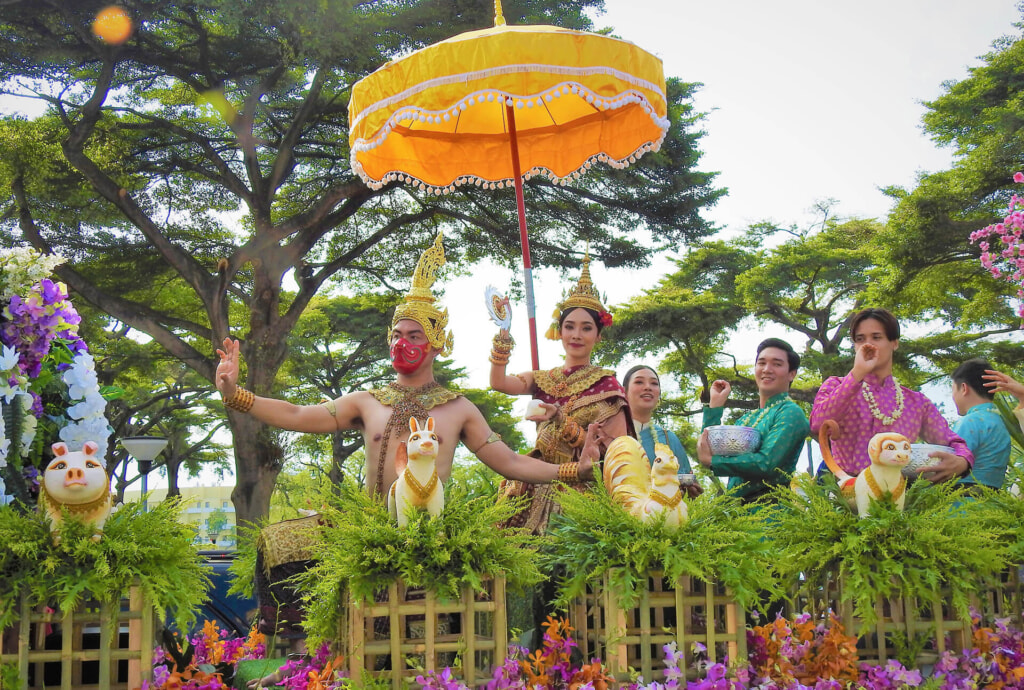
They had no compassion to the needy and helpless. No faith in Sila and Uposath but fun in sins, no faith in donation but greedy for wealth, no faith in Dhamma but made business of Dhamma. By seeing decline of Dhamma, he said, «Glory of humans lies in their faith in Dhamma. There is no Glory without Dhamma». With affirmation of this truth, people in the city immediately loss their glory, no proper rains, water and food scarcity prevailed, extreme drought with skin burning hot sun waves and dirtly bad smelled garbages were filled their homes.
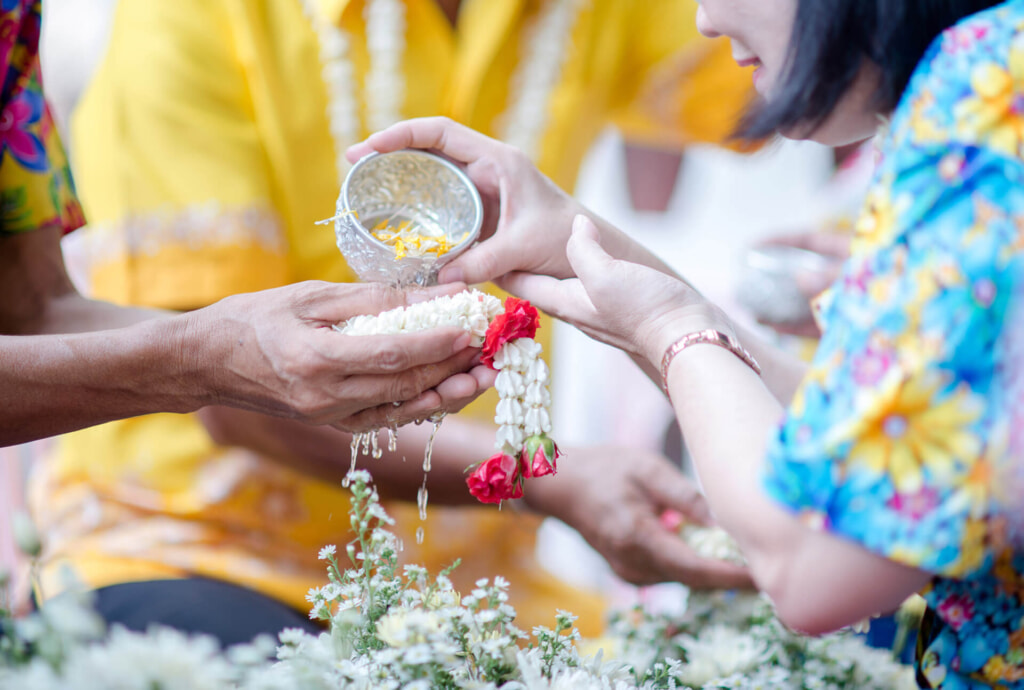
New Year Traditions
The Songkran celebration is rich with symbolic traditions. Mornings begin with merit-making. Visiting local temples and offering food to the Buddhist monks is commonly practiced. On this specific occasion, performing water pouring on Buddha statues and the young and elderly is a traditional ritual, representing purification and the washing away of one's sins and bad luck. As a festival of unity, people who have moved away usually return home to their loved ones and elders. Paying reverence to ancestors is an important part of Songkran tradition.
Theo ĐINH TRƯỜNG | Phóng viên Báo Nhân Dân thường trú tại Thái Lan
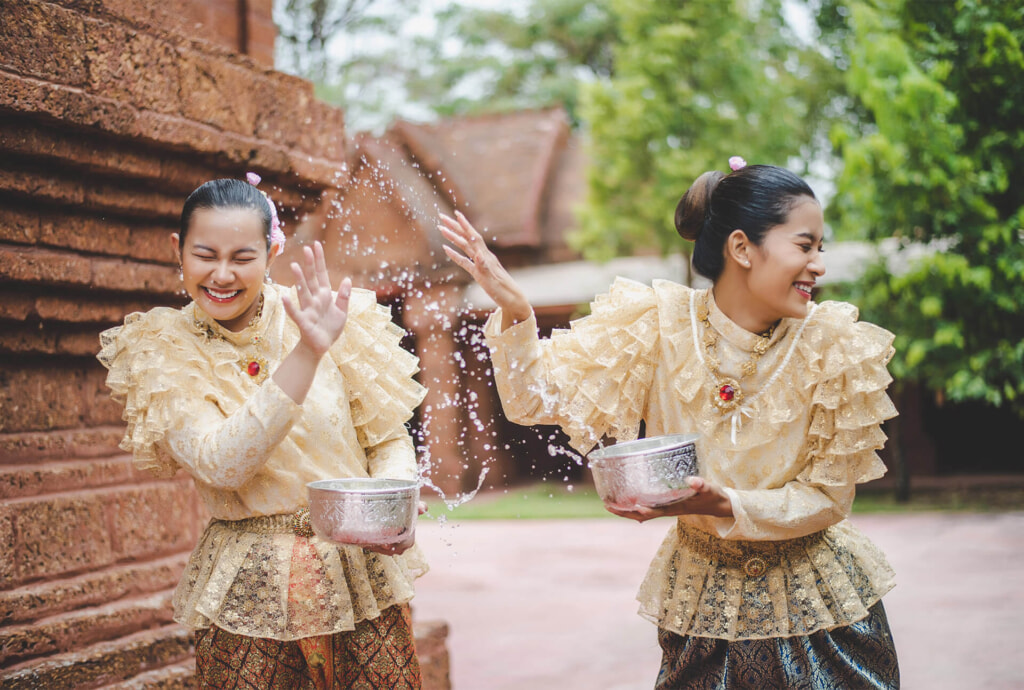
Lady Songkran
The holiday is known for its Water Festival. Major streets are closed to traffic, and are used as arenas for water fights. Celebrants, young and old, participate in this tradition by splashing water on each other. Traditional parades are held and in some venues «Lady Songkran» or «Miss Songkran» is crowned, where contestants are clothed in traditional Thai dress.
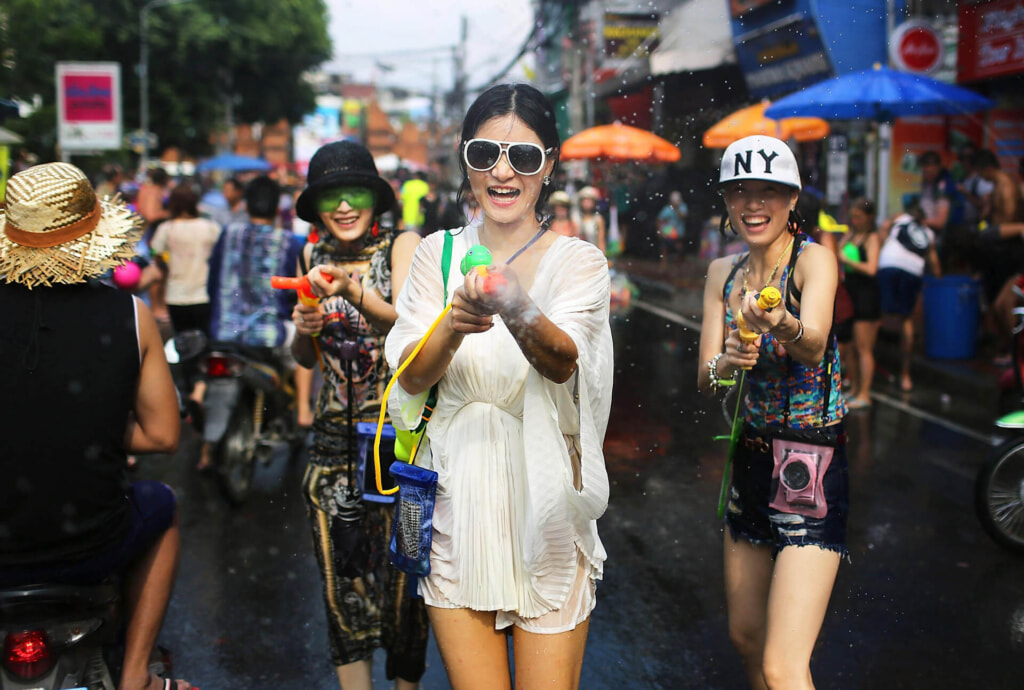
Festivities outside of Asia
Songkran celebrations are held in many parts of the country. One of the most notable celebrations is at the Wat Pa Buddharangsee Buddhist Temple in the Sydney suburb of Leumeah, New South Wales. The festival attracts thousands of visitors each year and involves a water fight, daily prayer, dance performances and food stalls which serve food of Thai, Bangladesh, Burmese, Cambodian, Laotian, Sri Lankan and Malaysian origin.
Songkran New Year Festivals: Choul Chnam Thmey in Cambodia 🇰🇭; Pi Maiin Laos 🇱🇦; Sinhalese New Year in Sri Lanka 🇱🇰; Songkran in Thailand 🇹🇭; Thingyan in Myanmar 🇲🇲; Sangken in Arunachal Pradesh and parts of Assam, India 🇮🇳; Water-Splashing Festival in Xishuangbanna in China 🇨🇳; and parts of northern Vietnam 🇻🇳.
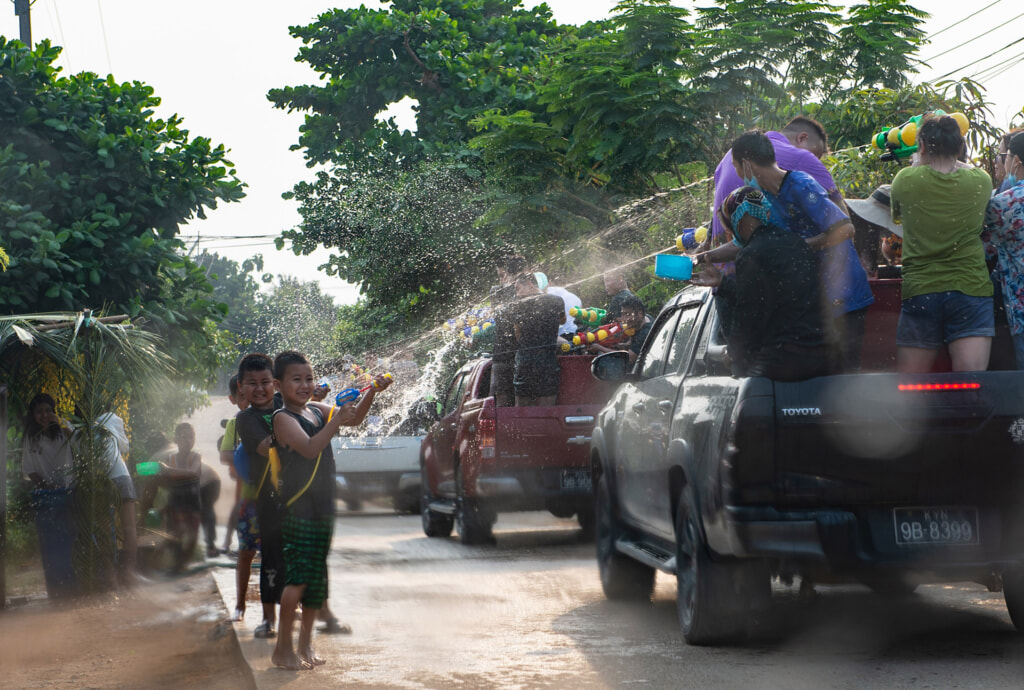
Thiên Xuân Travel – Live your travel dreams!
Park 2, 208 Nguyen Huu Canh Street, Ward 22,
Binh Thanh District, Ho Chi Minh City, Vietnam
📨 booking@thienxuantravel.com
☎️ +84 888 890 898 — 0938 558 228
Office in the United States
14114 Beech Glen Dr, Houston, TX 77083
☎️ +1 (281) 906-2744

